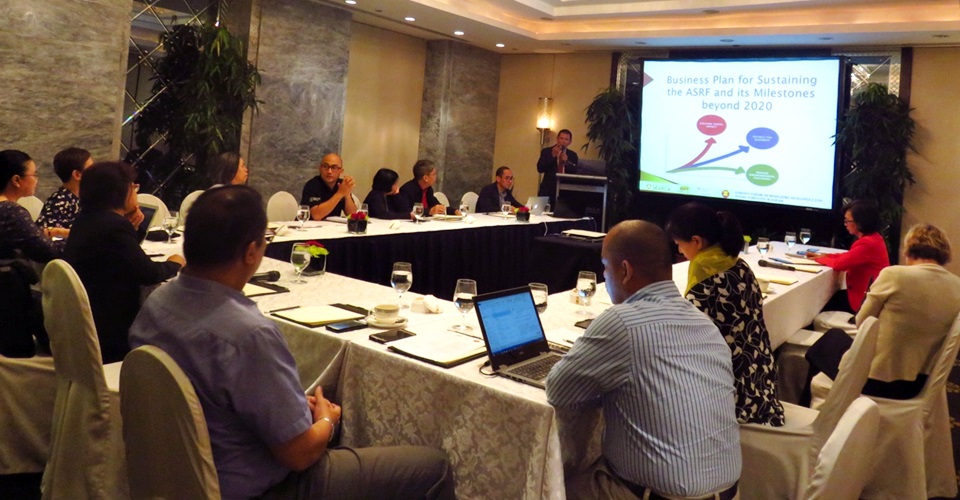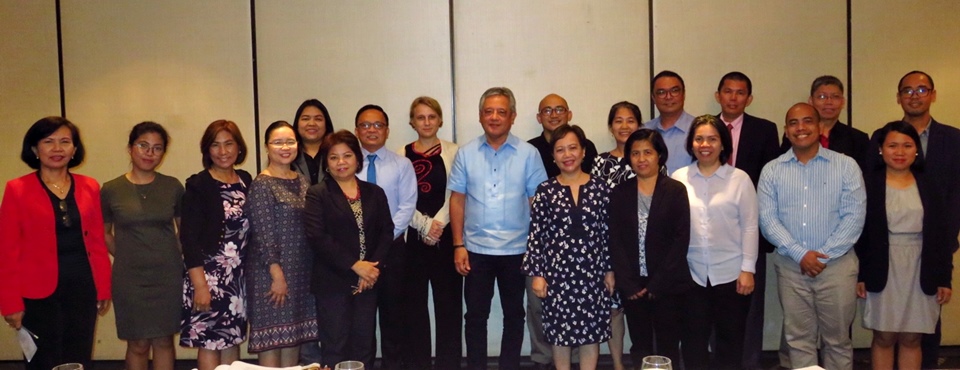The ASRF under the ASEAN-Swiss Partnership on Social Forestry and Climate Change (ASFCC) is designed to provide ASEAN Member States (AMS) Leaders and Focal Points on Social Forestry with seed fund to respond to immediate needs or catalyze strategic action to address emerging issues, opportunities, or other situations that may not have been anticipated, but to which the AMS and AWG-SF's response is critical. This program, funded by the Swiss Agency for Development and Cooperation (SDC), aims to integrate social forestry into the climate change adaptation and mitigation strategies of the ASEAN and its member states.
In his Welcome Remarks, SEARCA Director Dr. Gil C. Saguiguit, Jr. underscored the importance of pushing for programs and activities that can immediately respond to emerging issues and challenges affecting the uplands, low lying areas and coastal ecosystems, upon which many people rely for food, livelihood, and sustenance. Moreover, he noted that the ASRF projects in eight ASEAN countries have produced very promising results that if sustained and given much-needed support and resources can make significant contributions to the goal of integrating social forestry into climate change adaptation and mitigation strategies of the ASEAN and its member states.
In her keynote message, Dr. Doris Capistrano, ASFCC Senior Adviser, highlighted the importance of social forestry for sustainable forest management and the increasing recognition of its role in climate change mitigation and adaptation. She shared that the ASRF is an experiment, which has been tested to see if and to what extent seed funds can contribute to the achievement of social forestry goals of the AMS. Moreover, she underscored that the ASRF through its funded projects has empowered its stakeholders, spawned innovations, and disseminated lessons learned within the region.

Mr. Alain Maulion, SEARCA Technical Consultant, presented the draft ASRF Business Plan. He discussed how the ASRF and its funds can grow, providing possible fund leverage schemes from the AMS, bilateral and multilateral donors, and the private sector. Moreover, he facilitated the open forum where recommendations and comments to the draft were shared. These will be synthesized and presented to the ASRF Program Steering Committee Meeting in June 2018.
The following agencies were present in the Donors Forum: the Food and Agriculture Organization of the United Nation (FAO); United Nations Industrial Development Organization (UNIDO); World Agroforestry Centre (ICRAF); ASEAN Center for Biodiversity (ACB); Non-Timber Forest Products – Exchange Programme; Department of Environment and Natural Resources (DENR); the Foundation for the Philippine Environment (FPE); SEARCA; and ASFCC. A representative from the academe was also present. (Xyrus Godfrey B. Capiña)
